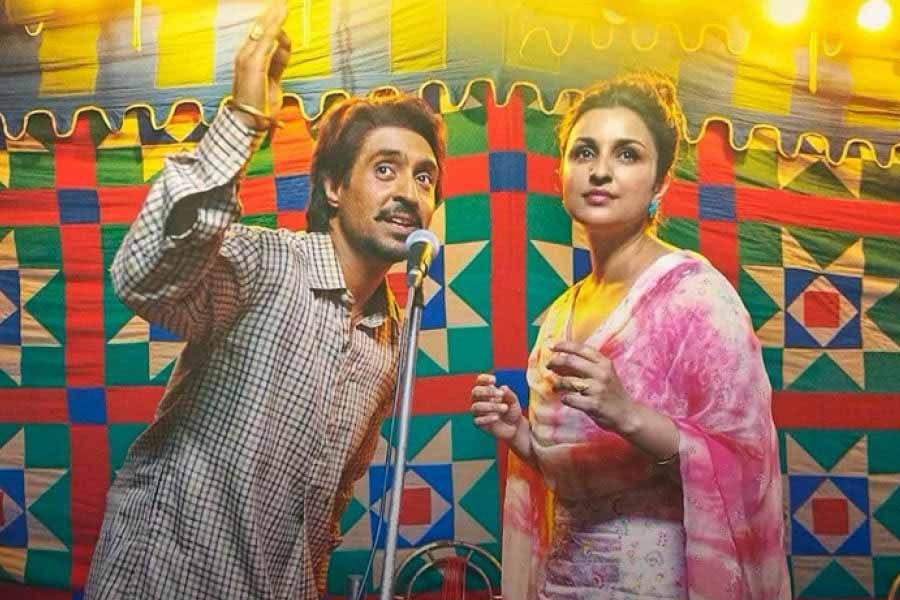In a triumphant return to the director’s chair, Imtiaz Ali delivers a film that celebrates the maverick singer Amar Singh Chamkila, a star in the Punjabi music scene of the 1980s, and leaves a message to ponder on.
The Netflix film begins with the assassination of Chamkila (Diljit Dosanjh) and his wife Amarjot (Parineeti Chopra), who were a singing duo, moments before a scheduled stage performance in 1988. It then moves to the investigation into the murder, which serves as an entry point to look at Chamkila’s life in retrospect.
Chamkila, whose real name was Dhanni Ram, grew up in a Dalit Sikh family in a village near Ludhiana in Punjab. Although he dreamt of becoming a singer, Chamkila was forced to take up a job as a labourer at a cloth mill to help his poor family. He would sing at local akhadas (music concerts) on the side and one day when the lead singer failed to show up, Chamkila stepped into his shoes. The year was 1977 and there was no turning back for him.
While his double entendre songs propelled Chamkila to fame, they also triggered criticism. Chamkila tried to change the public perception by switching to religious music, but later went back to his previous style to woo audiences. This decision led to catastrophic outcomes for both him and Amarjot.
Imtiaz interprets Chamkila’s life as a constant battle against entities that rise up to clamp down on him, offended by his provocative lyrics. At a time when Punjab was going through a socio-political churn, with the rise of militancy on one hand and government crackdown on the other, it was Chamkila’s popularity that made him a target of criticism though many of his peers were also singing double entendre songs. And his refusal to succumb to censorship — seen as an act of defiance — cemented his position as an icon.
In essence, Amar Singh Chamkila the film echoes Rockstar (2011) and Tamasha (2015), two of Imtiaz’s most celebrated films, all three of which have their music score by A.R. Rahman. Like Rockstar, Imtiaz’s Netflix film is a portrayal of a rebellious artist in search of his identity. Even Ishq Mitaye, sung by Mohit Chauhan, harps back to Sadda Haq from Rockstar. And like in Tamasha, Chamkila’s legacy is pieced together through the accounts of ordinary people and through song-and-dance, be it Baaja in the opening credits, which reminds you of Tamasha’s Chali Kahani, or Naram Kaalja, which celebrates Chamkila’s popularity among women.
Having A.R. Rahman on board, alongside Diljit Dosanjh’s singing prowess, has been a big win for the film. Sticking to the rise-and-fall narrative, keeping in mind the public fascination with Chamkila’s premature death, the film diverges by interweaving Rahman's original compositions into the plot. Imtiaz also draws from comic book aesthetics to liven up the portrayal of Chamkila’s showbiz journey, and cinematographer Sylvester Fonseca infuses the visual palette with vibrant hues.
All said and done, it is Diljit Dosanjh who holds the film together. As Amar Singh Chamkila, Diljit strikes a balance between his musician and actor selves — working his own flair for connecting with the audience in moderation while being authentic to the character. Parineeti delivers a notable performance as Chamkila’s wife, specially in the scenes where she sings full-throated on stage.










